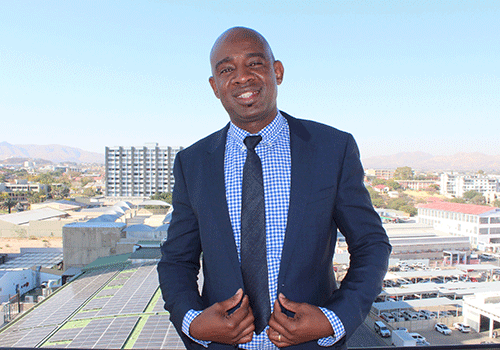Maihapa Ndjavera
Bank of Namibia has appealed to commercial banks to continue being open and accommodative to local small businesses, and investigate innovative ways and means to be more supportive to assist and support economic recovery efforts.
These remarks were part of Johannes !Gawaxab, Bank of Namibia (BoN) governor’s speech, delivered on his behalf by deputy governor Leonie Dunn at the Bankers Association Namibia handover of leadership event last week.
“The sector’s collective efforts immensely assisted some of our SMEs in their hour of need through the relief measures instituted during the peak of the Covid-19 pandemic,” said !Gawaxab.
He added the central bank is currently reviewing the Covid-19 SME loan scheme criteria: “We hope that the review of modalities, previously considered too stringent, can help distressed but viable businesses stay afloat and thus save jobs”.
According to him, fees and charges remain one of the major concerns for most customers, and the sector cannot ignore the outcry.
!Gawaxab stated the central bank recently approved regulatory fees and charges strategy to systematically consider issues from various vantage points and incorporate the public’s views.
The three-year strategy’s outcome is to deal with the persistent outcry of high fees and charges, especially those levied by commercial banks.
In addition, the strategy aims to ensure quality financial services are accessible through affordable means to every Namibian.
Incoming president of BAN and Bank Windhoek MD Baronice Hans said one of the ongoing challenges that need to be addressed during the next 12 months of Bank Windhoek’s tenure at the helm of the association is to clarify the role of the sector to the public and relevant stakeholders.
“Information empowers people and allows them to make better choices, and I believe that we need to make a concerted effort to ensure that our society has a better understanding of banking, and especially financial discipline and the productive use of debt,” noted Hans.
Bank Windhoek took over from Nedbank Namibia for the chairmanship of the association for 12 months.
Nedbank Namibia MD Martha Murorua stated credit risks to the banking sector might increase in 2022 on the back of potential interest rate hikes, inflationary pressures and a slower-than-expected economic recovery.
These difficulties affect the banking industry and the rest of the economy.
“The upside of the pandemic is the immense strides made by the BAN members to fast-track digital banking innovations, which elevated banking convenience for our clients to literally bank from anywhere at any time,” she said.



